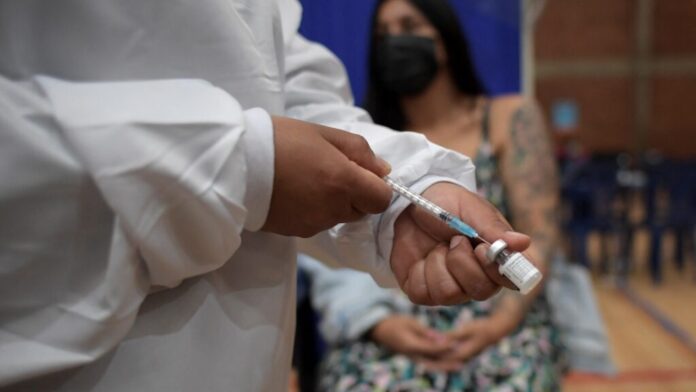"Unprecedented Move: Health Secretary RFK Jr. Rescinds COVID Vaccine Recommendations for Healthy Children and Pregnant Individuals"
Health Secretary Robert F. Kennedy Jr. Rescinds COVID-19 Vaccine Recommendations for Healthy Children and Pregnant Individuals
In a controversial move, Health Secretary Robert F. Kennedy Jr. announced on Tuesday that he has unilaterally rescinded the recommendations for COVID-19 vaccinations for healthy children and pregnant individuals. This decision, described by experts as unprecedented, has raised significant concerns regarding public health policy and the decision-making process within the Department of Health and Human Services (HHS).
Announcement Details
Kennedy made the announcement via a video posted on the social media platform X, flanked by prominent figures such as Jay Bhattacharya, director of the National Institutes of Health (NIH), and Marty Makary, commissioner of the Food and Drug Administration (FDA). The directive, signed on May 19, outlines the change but does not provide new evidence to support the decision. It remains unclear why Kennedy delayed the announcement for over a week.
In his statement, Kennedy asserted, “Based on a review of the recommendation of the FDA and the NIH, I have determined that the known risks associated with the use of COVID-19 vaccines in healthy U.S. children ages six months to 17 years do not outweigh the purported benefits of the vaccine.” He also cited a lack of “high-quality data demonstrating safety of the mRNA vaccines during pregnancy,” suggesting potential risks to both mothers and their developing babies.
Lack of Consultation
The announcement has drawn criticism for bypassing established protocols. Notably absent from the video were representatives from the Centers for Disease Control and Prevention (CDC), which typically sets vaccination policy based on recommendations from its Advisory Committee on Immunization Practices (ACIP). Sources indicate that neither the CDC nor ACIP was consulted prior to the announcement, raising questions about the legitimacy of the decision-making process.
As of Tuesday evening, the CDC’s website still listed COVID-19 vaccines in its pediatric vaccination schedule, indicating that the agency has not yet updated its guidelines to reflect Kennedy’s directive.
Expert Reactions
Experts have expressed alarm over the implications of Kennedy’s decision. Dorit Reiss, a law professor at UC Law San Francisco, emphasized the importance of following established processes in public health decisions. “There is a process, and it hasn’t been followed,” she stated, suggesting that the lack of consultation could render the decision vulnerable to legal challenges.
Kathryn Edwards, a former ACIP member and vaccines expert, criticized Kennedy’s actions as an overreach. “He’s overstepped his bounds,” she remarked, highlighting the potential risks to public health.
The American College of Obstetricians and Gynecologists (ACOG) also voiced strong disapproval, warning that the decision could endanger pregnant individuals and their infants. ACOG pointed to data indicating that COVID-19 infection during pregnancy can lead to severe complications, emphasizing that vaccination is a critical protective measure.
Implications for Access and Coverage
Kennedy’s directive does not render COVID-19 vaccines entirely unavailable; however, it could complicate insurance coverage. Under the Affordable Care Act, most health plans are required to cover vaccines recommended by ACIP at no cost. The removal of COVID-19 vaccines from the recommended schedule may lead to a patchwork of coverage, with some insurers potentially opting not to cover the vaccines for children and pregnant individuals.
The financial burden of vaccination could be significant, particularly for families. For instance, CVS currently charges $198.99 per dose for the COVID-19 vaccine, and young children require multiple doses for full vaccination.
Future Considerations
Kennedy’s decision comes at a time when ACIP is reviewing its COVID-19 vaccination guidelines. A subcommittee has indicated plans to shift from universal vaccination recommendations to a focus on high-risk populations, including older adults and individuals with certain medical conditions. The full committee is expected to vote on these changes in late June.
Experts like Michael Osterholm, director of the University of Minnesota’s Center for Infectious Disease Research and Policy, noted that Kennedy’s actions contradict his earlier promises to maintain vaccine access. The lack of transparency and expert input in this decision has raised concerns about the integrity of public health policy.
Conclusion
As the implications of Kennedy’s directive unfold, the public health community is left grappling with the potential consequences for vaccination rates and overall health outcomes. The situation underscores the critical importance of established processes in health policy decisions, particularly in the context of a global pandemic. The coming weeks will be pivotal as ACIP prepares to vote on its revised recommendations and as stakeholders respond to the changes initiated by Kennedy.
